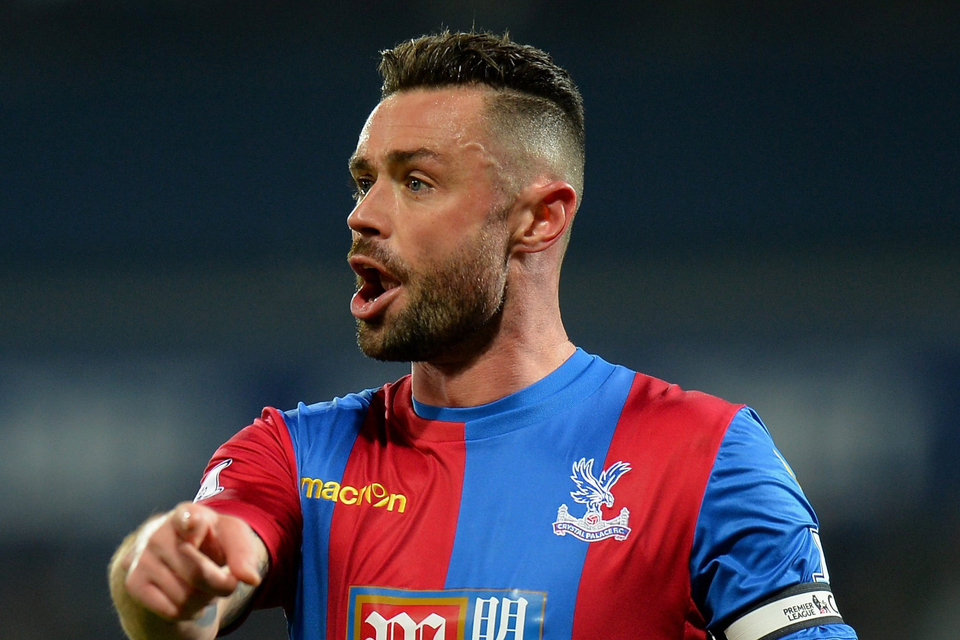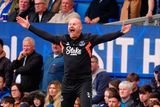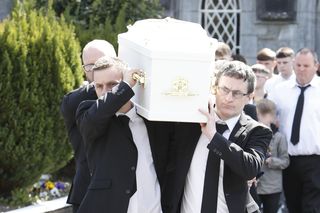Delaney eager to cap rise from ashes with another taste of Wembley joy
Damien Delaney made his top flight debut a decade and a half ago
Watford at Wembley. Damien Delaney has been there, done that, and it has set a high bar for the emotion that tomorrow's FA Cup semi-final between the sides at the venue will generate.
You might remember one of the defining images of the 2013 Championship play-off final between the London clubs. In the aftermath of victory, the Corkman took a moment away from it all in the tunnel to sit down and shed a tear as he considered the scale of what he had just achieved.
This was the moment where a player who ticked quite a few of the boxes for the journeyman label ensured that his legacy would be different.
He had started that season as an out-of-work footballer, still coming to terms with his release from a stint at Ipswich which included a fiery relationship with Roy Keane.
Palace assistant manager Keith Millen later recalled trying to sign Delaney towards the end of that spell. "His head had gone," he said, "I think he'd had a real tough time with Roy as manager and he was almost thinking of quitting the game or going to America."
It was a chance call from then Palace boss Dougie Freedman late in the summer of 2012 that kept Delaney in the game. He was offered a short-term deal which was extended along the way to Wembley. From there, he has beaten the odds by enjoying the best seasons of his career in his 30s, a time when so many of his peers are sliding down.
He is the perfect role model for the solid pros operating away below the top flight, working hard to survive in a tough trade.
From an Irish perspective, only Glenn Whelan, Robbie Brady and Seamus Coleman have started more Premier League games this season.
Indeed, Delaney made his top flight debut a decade and a half ago.
Recruit
Keane was in his pomp when Peter Taylor made the shock decision to throw the recruit from Cork City into his Leicester City side for a St Patrick's Day 2001 encounter at Old Trafford. Denis Irwin was also on the pitch that day. John O'Shea was eight months away from his league bow.
Two years earlier, Delaney was torn between pursuing a career in soccer and his GAA commitments. He was given exposure of playing in front of huge crowds when part of the Cork side that reached the All-Ireland minor semi-final in 1999. After destroying Kerry in the Munster final, Delaney scored two goals from midfield at Croke Park but still ended up on the losing side to Mayo.
His father Finbarr was a useful hurling goalkeeper but he had also lined out between the sticks for Ringmahon Rangers - he once saved a penalty from Liam Buckley in an FAI Cup tie with Shamrock Rovers at the old Milltown.
The younger Delaney was drawn to that code and had only just broken into the first team with his home-town club when Leicester came calling in October 2000; they had insider knowledge of his ability as a couple of months previously they had hired Cork's English boss Colin Murphy to work in tandem with Taylor.
After a meteoric rise, he had to cope with a slight fall. Loans at Stockport, Mansfield and Huddersfield were followed by a permanent switch to link up with Taylor and Murphy again at Hull. He spent six years there, one at QPR and three at Ipswich, forging a reputation as a reliable Championship pro.
Giovanni Trapattoni gave him an Irish debut in 2008 as a left-back, although he was largely deployed as a centre-back at club level by this stage. He was in and out of the squads and his exclusion only became a story when his late blossoming at Palace was contrasted with the struggles of his defensive rivals.
The international ship has sailed, with Delaney and Martin O'Neill disagreeing over the chain of events, but telling his story through the prism of his Ireland experiences risks putting a negative slant on an uplifting tale.
Whatever happens from now, the 34-year-old qualifies as a genuine success story.














